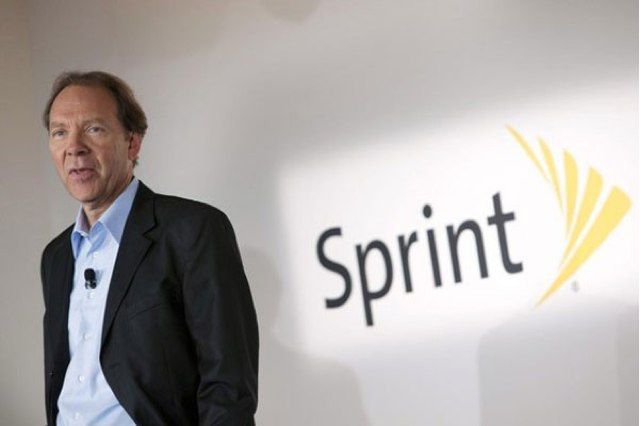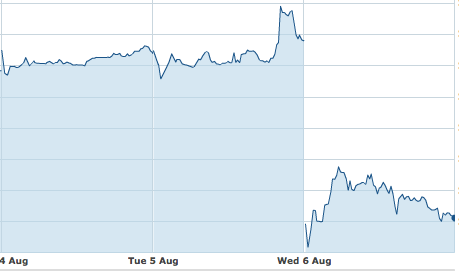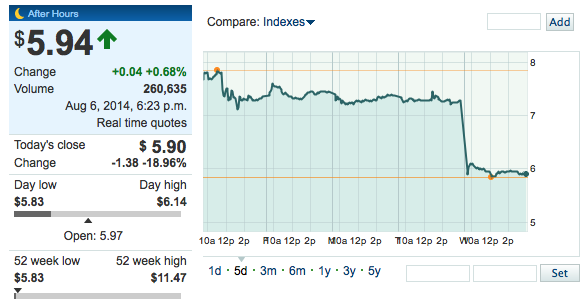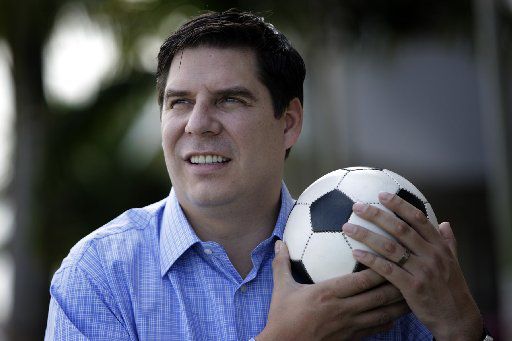Fallout from last night: Hesse gone, Legere “welcomes” new Sprint CEO, stocks tank and more…
It’s been interesting watching the internet react to last night’s developments. For those who may have missed it: Sprint gave up on its plan to merge with T-Mobile, and since then, all hell has broken loose.
1. Stocks Tank
It’d be foolish to assume that company stock value wouldn’t be affected by the major news, and neither T-Mobile nor Sprint came out unscathed. TMUS dropped 8.40% following news that its rumored merger with Sprint wasn’t going to happen.
Sprint value tanked further. Its value dropped to its lowest level for the past 12 months, to just over $5.80 per share. Overnight it dropped by over 18%.
In short, the Stock Market didn’t take too kindly to the idea that these two carriers will now be going it alone. At least for the foreseeable future. On a more positive note, both companies have improved very slightly in after-hours trading today.
.
2. Hesse sacked, BrightStar chief joins Sprint as new CEO
No sooner had the news broke that the T-Mo deal was off, then we heard its CEO Dan Hesse would be out as CEO, to be replaced by Brightstar founder Marcelo Claure. He begins in his new position on Monday, August 11th. Dan Hesse had served Sprint since 2007.
My immediate thoughts following the news took me back to rumors that John Legere would be taking over a merged company, if it were to happen. If that was true, and was the plan, Hesse was already out. But removing Hesse after the deal was cancelled suggests Sprint had lost confidence in him way before deciding to scrap its merger plans. Clearly getting a new CEO in the short term was never worth it, but since the deal is off, there was no point in delaying the inevitable.
Although consolidation with T-Mo isn’t going to happen, SoftBank’s Chairman Masayoshi Son still believes consolidation in the market is the best way forward in future:
“While we continue to believe industry consolidation will enhance competitiveness and benefit customers,” Son says, “our focus moving forward will be on making Sprint the most successful carrier.”
SoftBank already owns part of the incoming Chief’s company, BrightStar, which has given Claure the experience of working closely with Sprint’s board already.
“I’ve had the unique opportunity to spend the past few months actively engaging with Sprint’s board, management team, and front-line employees,” Claure says in a statement. “I am honored to have the opportunity to now lead the Sprint team as we mobilize to become the wireless carrier of choice in the US.”
SoftBank now plans on acquiring the rest of BrightStar.
Via: The Verge
3. John Legere “welcomes” the new chief
In his typical style, John Legere has welcomed the new chief on Twitter.
Looks like @sprint has a new #framily member… and he’s got a lot of framily therapy to do, asap. #justsayin
— John Legere (@JohnLegere) August 6, 2014
Pro-tip for @marceloclaure, tell people how to pronounce your name now… #leegair!?
— John Legere (@JohnLegere) August 6, 2014
And used the fallout as an opportunity to invited Sprint customers to leave the sinking ship and join Magenta:
Join T-Mobile now and jump off the Sprint bus before it crashes! #framily #unleash
— John Legere (@JohnLegere) August 6, 2014
If you’re a @sprint customer, you’re in the middle of a #framilyfued and it’s time to up and go! To @TMobile… #hadto
— John Legere (@JohnLegere) August 6, 2014
Is Sprint a melting ice cube?….looks like it to me….join the cool brand NOW! #T-Mobile #Unleash
— John Legere (@JohnLegere) August 6, 2014
There more of those, but three seems like plenty.
4. Door open for Iliad?
Did Iliad know about Sprint’s decision before the rest of us? Is that why it offered its own $33 per share offer for T-Mobile. (Side note: T-Mobile stock is currently sitting at just $31.06).
WSJ reports that the Paris-based telecoms company plans to “forge ahead” with its bid for T-Mobile, despite reports that Deutsche Telekom had dismissed it. The publication’s source claims that “the offer looks better than it did yesterday” and that it “is still there, and it is good”.
Via: WSJ




